 At no other time have people been more aware of the need for improvements to indoor air quality in both homes and businesses than now. We often work with commercial indoor air quality in Whitby, ON and can help your commercial facility with the necessary installations, repairs, replacements, and retrofits to solve the issues with your indoor air.
At no other time have people been more aware of the need for improvements to indoor air quality in both homes and businesses than now. We often work with commercial indoor air quality in Whitby, ON and can help your commercial facility with the necessary installations, repairs, replacements, and retrofits to solve the issues with your indoor air.
With the wide range of business types, there are many different problems that can affect indoor air quality. When you work with us, we’ll identify the specific concerns you are facing and help you with customized solutions. We’re going to look at a few of the common air quality problems that commercial facilities deal with. These are the troubles to watch for that will alert you to the need for professional HVAC assistance.

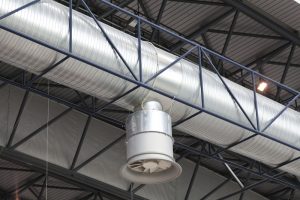 Yet another harsh winter in Toronto is getting started, and we can expect temperatures to drop much lower than the 3°C we’re currently experiencing. If you own or operate a commercial business, this is the time of year when you’ll have your facility sealed off from the outside weather as much as possible, both for the purposes of comfort and protection of equipment and safety, and to keep energy bills from rising exponentially.
Yet another harsh winter in Toronto is getting started, and we can expect temperatures to drop much lower than the 3°C we’re currently experiencing. If you own or operate a commercial business, this is the time of year when you’ll have your facility sealed off from the outside weather as much as possible, both for the purposes of comfort and protection of equipment and safety, and to keep energy bills from rising exponentially. The way you use
The way you use  You don’t want your commercial facility to suffer from any interruptions during the harsh Toronto winters because of a heating system failure. This applies to almost any type of commercial operation, from manufacturing to retail.
You don’t want your commercial facility to suffer from any interruptions during the harsh Toronto winters because of a heating system failure. This applies to almost any type of commercial operation, from manufacturing to retail. 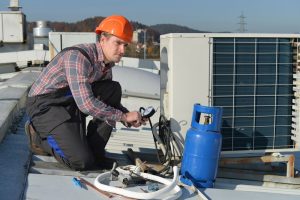 Although people connect the word “refrigerant” to devices that produce cooling, such as air conditioners and refrigeration equipment, refrigerant is often an essential part of the heating and cooling systems for commercial spaces. The standard rooftop units that most facilities use for climate control use refrigerant to both move into and out of the space. Under normal circumstances, refrigerant-based equipment will use the same charge of refrigerant through its service life—refrigerant circulates in a closed loop and does not dissipate through the heat exchange process.
Although people connect the word “refrigerant” to devices that produce cooling, such as air conditioners and refrigeration equipment, refrigerant is often an essential part of the heating and cooling systems for commercial spaces. The standard rooftop units that most facilities use for climate control use refrigerant to both move into and out of the space. Under normal circumstances, refrigerant-based equipment will use the same charge of refrigerant through its service life—refrigerant circulates in a closed loop and does not dissipate through the heat exchange process.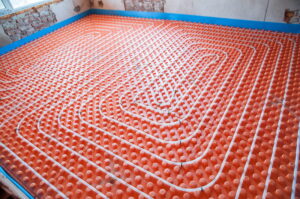 We work with all types of
We work with all types of 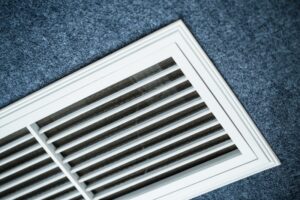 When people think about the work commercial HVAC contractors do, they usually think of climate control. But our HVAC services concentrate on indoor air quality as much as heating and cooling. Creating clean air for commercial buildings is a large task that requires the best in technology and skill.
When people think about the work commercial HVAC contractors do, they usually think of climate control. But our HVAC services concentrate on indoor air quality as much as heating and cooling. Creating clean air for commercial buildings is a large task that requires the best in technology and skill.  Fall has officially started, and we hope you’re thinking about the
Fall has officially started, and we hope you’re thinking about the 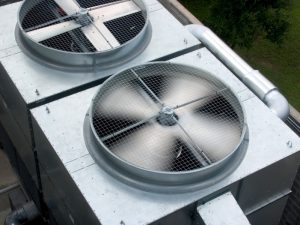 When you think about indoor air quality problems for your commercial facility, your mind probably goes directly to contaminants circulating through the ventilation system or various indoor pollutants. But one of the biggest issues for commercial indoor air quality is
When you think about indoor air quality problems for your commercial facility, your mind probably goes directly to contaminants circulating through the ventilation system or various indoor pollutants. But one of the biggest issues for commercial indoor air quality is 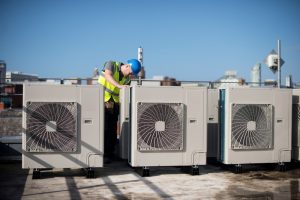 The task of providing cooling for a commercial facility is complicated. There are many more types of HVAC systems for commercial cooling than for residential. Residential homes favor the simple split system with an outdoor condenser and indoor evaporator with a blower and network of ducts. The wide range of types of businesses with their different needs requires a similar variety of commercial AC systems.
The task of providing cooling for a commercial facility is complicated. There are many more types of HVAC systems for commercial cooling than for residential. Residential homes favor the simple split system with an outdoor condenser and indoor evaporator with a blower and network of ducts. The wide range of types of businesses with their different needs requires a similar variety of commercial AC systems. 